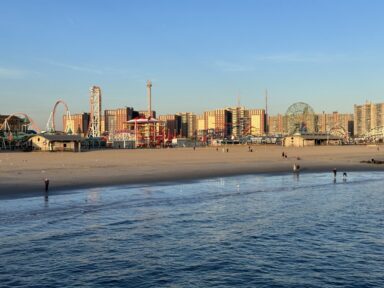Saving endangered species with a brand: Lacoste
Text by: Charlotte Garlaschelli
The capsule collection Lacoste Save Our Species, presented during the Paris Fashion Week 2018, is already sold out. What a rarity, indeed, these white polo shirts featuring little threatened animals in place of the brand’s traditional crocodile.
The brand produced the exact limited number of t-shirts to equal the number of these animals still surviving in the world. For the “lucky” iguana of Anegada Island the brand made 450 shirts. Other animals featured in the Lacoste collection include the Sumatran Tiger (350), the California Condor (231), the Cao-vit gibbon (150), the Kakopo parrot (157), the rhinoceros of Sonde (67), Northern Lepilemur (50) and the Batagur turtle of Burma (40). Last, but not least endangered: 30 t-shirts for the Vaquita, an agile mammal from the Gulf of California that too often gets entangled in shrimp nets.
This collection stems from the idea of the fashion world’s commitment to the creation and promotion of sustainability, attention to flora, fauna and our whole planet, which is increasingly threatened by humans and their activities.
Proceeds from the sales were donated to the IUCN, International Union for Conservation of Nature. These polo-shirts, with a cost that exceeds € 150, were immediately sold out, thus making the product now even rarer. Fortunately, however, the communication campaign of the activity has circled the globe within a few hours and quickly reached its goal of awareness. After all, Lacoste is well-known for being a brand that cares about the environment. Without tracing back the whole eco-oriented history of its founder, René Lacoste, since 2009 the company has been developing a project for the protection of caimans, alligators and crocodiles. It has also worked on the recovery of the ecosystem in which these animals live, fighting deforestation and obtaining the FSC certification (Forest Stewardship Council). The environmental impact of the brand is constantly monitored, with a special focus on the consumption of energy, water, waste, raw materials, transportation and CO2 levels both in Lacoste stores and in their production departments.
In a few words, a conscious work that aims at favouring a sustainable kind of fashion industry and concentrating first of all on social well-being and its externalities.


